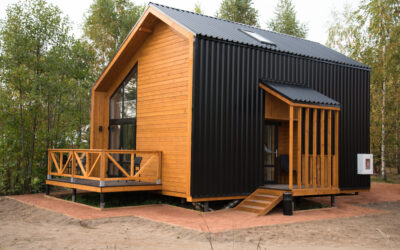What are the tax and investment considerations for a Granny Flat above versus a Tiny Home below? Income Tax Return Reporting - Income Streaming Tiny Homes Tiny home ownership does not have to follow the ownership interest of the underlying property ownership. For...
Single Baby Boomers Sharing a House:- Living Far Better for Far Less in Retirement.

Emerging trends
Some single baby boomers are using their home as a money box to sell up, pool resources and move in together.
Cooperative living for older people is a well-established movement in countries such as the US and many European countries, with some people successfully living together for decades.
In Australia it is only beginning to become popular. There are more single women living on their own than men. Women make up nearly 30% of women aged 64-75 living on their own compared with 18% of men.
Frequently the family home is used as a money box as they downsize to fund their retirement.
Baby boomer couples are divorcing at double the rate of other age groups in the US, which Australia tends to follow.
Advantages of Cohabitation
- Friendship and social interaction
- Household chores are shared
- Feeling of security with more people around in the home.
- Not as isolated as living alone
- Fewer expenses than living alone and possibly able to share a property they couldn’t afford alone.
Disadvantages of Cohabitation
- You will lose some of your freedom by sharing
- You’ll have rules to follow in the household
- There will be conflicts to work through together
- You will need to rules around visitors or overnight guests.
- Loss of privacy.

Cohabitation Agreement
So before any commitment to either renting or buying together, you’ll need to draw up a cohabitation agreement of sorts with rules to abide by.
The co-ownership agreement will need to be a legally binding agreement to cover all the “what ifs, that can arise.
There will be logistics to get right for cooperative living. It is essential to have the:-
- Right chemistry
- Similar goals, possible stage of life
- Retirement plans
- The financial contributions of each understood and agreed to in advance
Also you’ll need to have an exit strategy as part of the agreement, if it doesn’t work out for various reasons:-
- one needs to consider possible higher care options
- one may have a financial disaster or dies
- one invites someone else to move in without the consent of the other
- one fails to meet their respective financial contributions
- or irreconcilable differences that may need mediation
See the book available on Amazon:-
My House Our House: Living Far Better for Far Less in a Cooperative Household
See also:- Selling off the backyard to help fund staying put.
As part of considering any cohabitation, there are many taxes, financial and legal issues to consider.
We can help with:-
- Tax issues around selling current property holdings with a mixture of Principal place of residence exemptions or not
- Liaise with your solicitor and financial planner to assist in the drafting of any agreement, and understanding the cost benefits of cooperative living.
- Or simply explore any tax issues that may apply in your situation.



